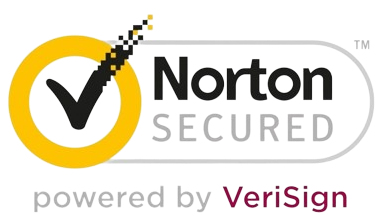The word cláirseach (sometimes spelled clairseach) is a fascinating and culturally rich Irish term meaning “harp.” From the moment you say cláirseach, you’re connecting with a centuries-old Irish musical tradition, the national symbol of Ireland, and a dynamic word you can use in your language study. In this article we’ll explore the meaning of cláirseach, how it’s used, its pronunciation, its history, and how you as a learner can incorporate it into your Irish vocabulary.
Meaning and Basic Definition
What does cláirseach mean?
According to Irish dictionaries, cláirseach (feminine noun) typically means “harp.” teanglann.ie+2teanglann.ie+2
It also historically can mean a “large flat object” or even “woodlouse/slater” in older dictionary senses, but the strongly recognized meaning now is the harp. teanglann.ie
Why it’s a useful word to know
- When you learn the word cláirseach, you connect not only with language but with culture.
- You’ll see cláirseach in discussions of music, history, national symbols, and Irish art.
- Incorporating it into your vocabulary adds depth to your learning beyond everyday conversation.
Pronunciation and Variants
Pronounce it with confidence
The Irish word cláirseach is pronounced something like “KLAA-r-shukh” (the ending “-seach” having a soft “sh” + guttural “kh/h” sound). The exact sound may differ slightly by region. Wiktionary
Spelling and variant forms
- Spelling: cláirseach (with the fada on the á)
- Variant anglicised spelling: clairseach
- Plural: cláirseacha (harps) Wiktionary
Helpful tip
When typing or writing Irish, don’t forget the fada (´) over the á — cláirseach not clairseach. A good keyboard guide here is the Fada Keyboard Shortcut Guide.
Cultural and Historical Background
A national symbol
The harp (the cláirseach) has long been a symbol of Ireland. For example, the harp appears on Irish coins and on state heraldry. ria.ie+1
Origins of the word and instrument
The word cláirseach is derived from clár meaning “board” or “flat surface,” referring to the sound-board of the harp. wirestrungharp.com+1
The instrument itself dates back many centuries in Ireland and Scotland; the Irish cláirseach (and Scottish clàrsach) are closely related. Wikipedia+1
Why this matters for your learning
By understanding cláirseach, you link language to history. It’s not just a noun — it’s a story: a national instrument, artistry, tradition, revival. That enriches your Irish vocabulary and your appreciation of the culture behind the words.
How to Use Cláirseach in Irish Sentences
Simple example phrases
- Tá an chláirseach á seinm aige. — “He is playing the harp.”
- Chonaic mé cláirseacha ag an gcéad féile ceoil. — “I saw harps at the first music festival.”
- Bhain sí taitneamh as fuaim na cláirseach. — “She enjoyed the sound of the harp.”
Vocabulary breakdown
- chláirseach (lenited after article)
- cláirseacha (plural)
- seinnim ar chláirseach — “I play the harp”
Practice list
Here are suggestions you can use:
- Féach ar an chláirseach sin! — “Look at that harp!”
- An bhfaca tú cláirseacha eile inniu? — “Did you see other harps today?”
- Ba mhaith liom foghlaim an chláirseach a sheinm. — “I would like to learn to play the harp.”
Learning Tips & Related Resources
Flashcard exercise
- Front: cláirseach → Back: “harp”
- Include plural: cláirseacha → “harps”
Construct a mini-paragraph
Write a short paragraph (3-4 sentences) using cláirseach and a verb (e.g., seinm – to play).
Build connections
See how cláirseach fits with other Irish music-related words:
- ceol (music)
- seinnim (I play)
- fonn (tune)
- céilí (traditional dance)
Explore more with Gaeilgeoir AI
Check out our Irish Language Lessons for Beginners to expand your ability to use words like cláirseach in full sentences and conversations.
Common Mistakes & Tips for Avoidance
- Missing fada: Writing clairseach without the accent may impact pronunciation.
- Mispronouncing: Don’t say “CLAIR-seach” like ‘clair’ in English — ensure the “klahr-shukh” sound and Irish rhythm.
- Plural confusion: Remember the plural cláirseacha, not cláirseachs.
- Context misuse: Use cláirseach specifically for “harp” (the instrument), not any generic “harp-like thing.”
Why Cláirseach Matters in Your Irish-Learning Journey
- Cultural insight: Using cláirseach brings you closer to Irish heritage, art and identity.
- Memorable vocabulary: Because it has strong cultural resonance, you’re more likely to remember the word.
- Conversation starter: Saying something like “Tá dhá chláirseach againn” (“We have two harps”) opens up cultural conversation and practice.
- Bridge to other topics: Once you know cláirseach, you can talk about Irish music, Gaelic revival, instruments, festivals and more.
Sample Mini-Lesson Plan
1. Warm-up (5 minutes)
Listen to a short clip of harp music. Think: “An bhfuil mé ag éisteacht leis an chláirseach?”
2. Vocabulary focus (10 minutes)
Write three sentences using cláirseach: singular, plural, and past tense.
3. Conversation practice (10 minutes)
Pair up (if possible) or record yourself: Describe a scene with a harp and your feelings about it. Use cláirseach at least twice.
4. Cultural extension (5 minutes)
Read a short article (or snippet) about the Irish harp’s symbolism. Note the word cláirseach.
5. Reflection (5 minutes)
Ask yourself: Which sentence felt most natural? What did I learn about cláirseach today?
Make Cláirseach Part of Your Irish Lexicon
The word cláirseach offers more than a translation of “harp.” It connects you to tradition, culture, sound, history, and language. When you use cláirseach, you’re not just naming an instrument — you’re tapping into centuries of Irish musical heritage.
As you continue your Irish-learning journey with Gaeilgeoir AI, try saying:
“Seo mo chláirseach samhaltaithe — bain taitneamh as.”
(“Here’s my model harp — enjoy it.”)
Let cláirseach be one of your memorable verbs and nouns — play it, write it, say it. And if you’re ready to dive further into Irish conversation, grammar and vocabulary, join our learning platform at learn.gaeilgeoir.ai. Go n-éirí le tú!

